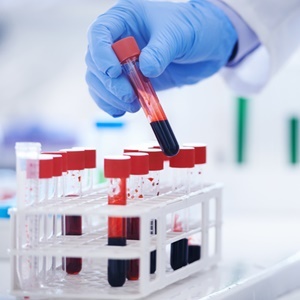
Ever get a random email or two-second phone call saying your blood test results were normal? How about a huge stack of papers you have no idea how to decode? Understanding blood test results can be one of the most confusing parts of going to the doctor.
It can be tempting to stay quiet, but knowing how to talk to your doctor about your blood test results can be key to getting the most out of the tests and learning about your personal health needs.
It’s important that patients realize that blood tests are a routine procedure and that there’s no need to be anxious or afraid, says Dr Karina K. Lee, an internist at Princeton Medicine.
“It’s better to test things early,” Lee says. “If we find that your cholesterol is borderline or your sugar is borderline, it’s great to catch it early so that you can start making lifestyle changes to prevent having to take medication later or things getting more serious.”
Blood tests typically include blood counts, which look at the amount of different types of blood cells, and a chemistry profile, which looks at substances like sugar and cholesterol. These indicators can provide information including how your organs are functioning and whether you have any infections.
But it’s important to understand that blood tests are tailored for individual patients, Lee says. Doctors often run different tests at different frequencies depending on the patient’s age, family history, and any conditions or symptoms, like a cholesterol screening for someone with high blood pressure or thyroid levels if someone has been fatigued. Before your blood test, be sure to have a candid convo with your doc about what’s being tested, says Dr Orli Etingin, medical director of the Iris Cantor Women’s Health Center at NewYork-Presbyterian/ Weill-Cornell Medicine.
Here are five general questions you can ask your doctor about your blood tests results to start a conversation about your health.
1/ Is anything abnormal?
Find out whether there were any abnormalities in the results and if so, ask what your doctor suggests you should do about it, Lee says.
Advice could include any vitamins or medications you should start taking or any specific lifestyle changes you should make.
READ MORE: The Illness You’re Most Likely To Get, According To Your Blood Type
2/ How do my results match up to my family history?
It’s essential to talk to your doctor about your family’s medical history, Etingin says. When your doctors knows what diseases and surgeries your parents and grandparents had at what ages, she can better analyze blood tests to monitor whether you’re at risk, Etingin says. Of course, it’s always better if you’re up to speed on your family’s health history before your blood test, but either way, mentioning any concerns will help her tailor any explanations after the test.
3/ Does the blood work explain any of the symptoms I’m experiencing?
Never be embarrassed about asking your doctor questions, even awkward ones, Lee says.
“Any concerns you have, you should address with your doctor,” she says. “It helps to write them down. Just be open and honest.”
Your blood tests results could offer explanations.
4/ Are there any lifestyle changes I should make?
People get physicals for two main reasons, Etingin says. The first is to detect disease and pursue prevention strategies. The second is to gather information and empower themselves with good lifestyle choices.
When your doctor calls with your blood test results, it offers another opportunity for you to get unique suggestions from an expert about how you can live a healthier life overall.
5/ Should I follow up on these results?
It’s up to you to be proactive about following up on your results with additional appointments and screenings.
Of course, these questions are very broad, Etingin says. The most important thing is communicating with your doctor and discovering which tests and actions are the best fit for you.
This article was originally published on www.womenshealthsa.co.za
Image credit: iStock




 Publications
Publications
 Partners
Partners














